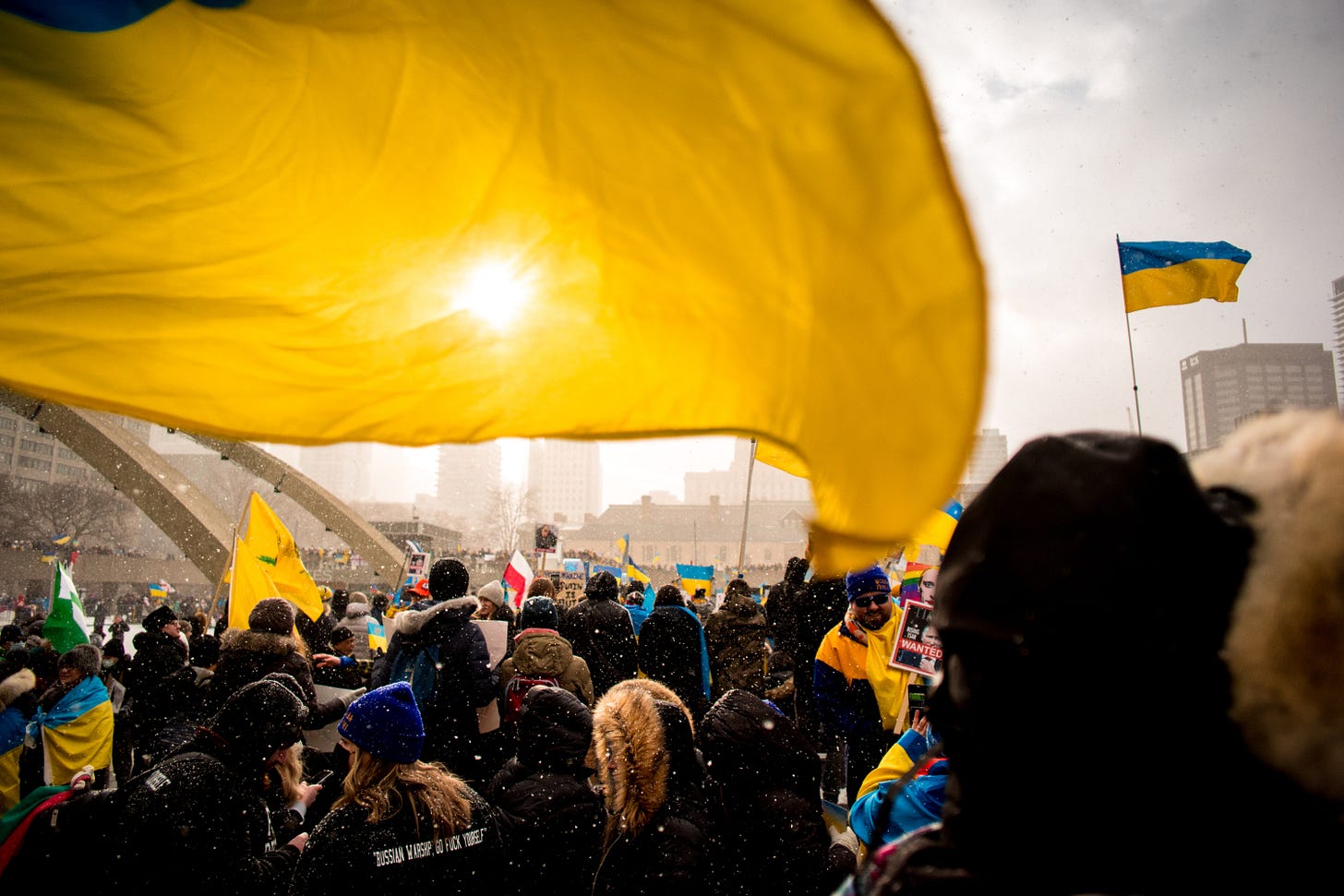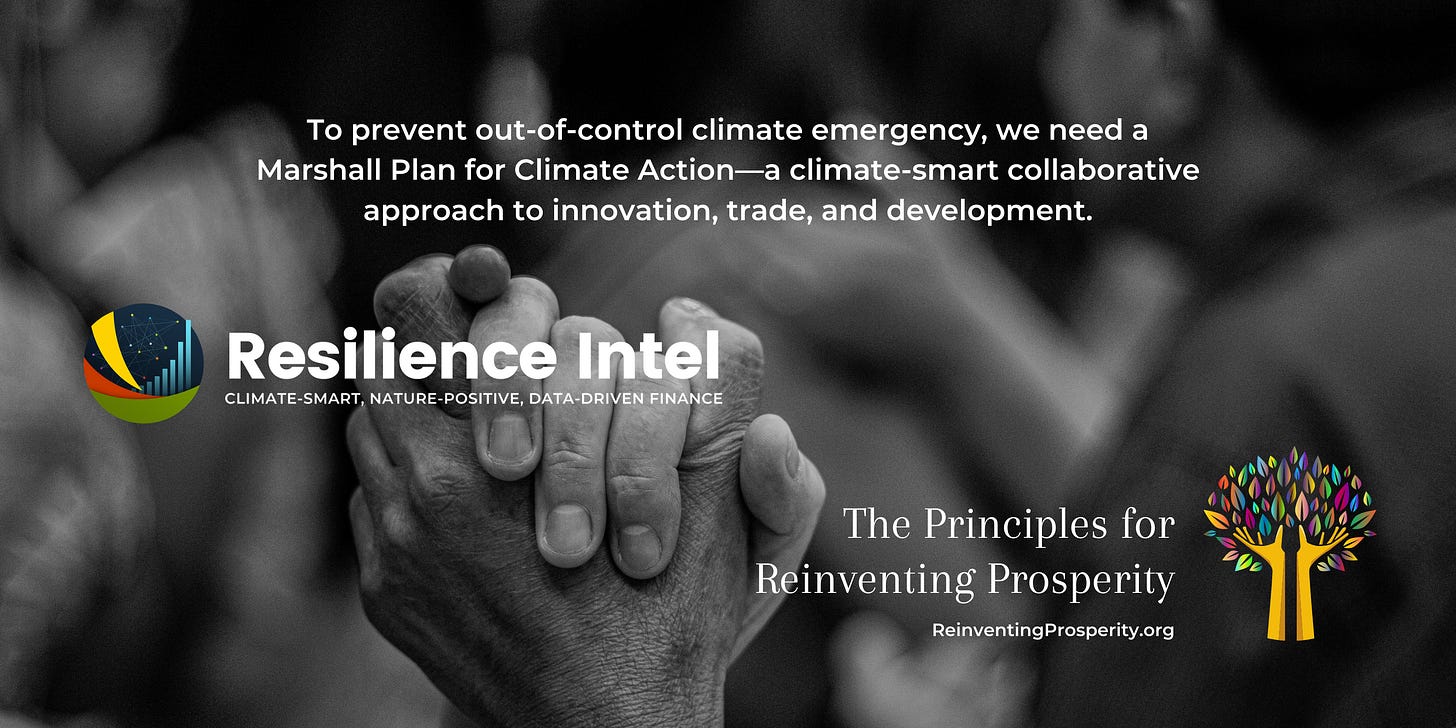US & EU expand efforts to protect democracy, secure food & energy supplies & counter corruption
During a tour of European capitals, in an effort to bolster and maintain historic unity among NATO allies and the wider community of western democracies, US President Joe Biden met with the European Council and with European Commission President Ursula Von der Leyen. Biden and Von der Leyen issued a joint statement Thursday outlining a series of new measures to bolster cooperation and defense.

The two leaders declared:
We are united in our support of Ukraine’s sovereignty and territorial integrity. And we are united in our resolve to defend our shared values, including democracy, respect for human rights, global peace and stability, and the rules-based international order.
They announced:
Expanded sanctions, targeting many more Russian officials, businesses, and institutions;
Expanded sanctions enforcement, to ensure neither countries nor companies can help Putin get around them;
Major sustained funding for international food aid and food security measures, including dedicated assistance to “secure access to basic goods and services for the Ukrainian population and also support Ukraine’s agricultural sector”;
New measures to counter corruption, uncover and prevent money laundering, block illicit financial flows, and prevent the malicious use of “digital assets”;
A combined additional $1.7 billion for humanitarian assistance;
Expanded access to the US for Ukrainian refugees;
A new European Democratic Resilience Initiative (EDRI) to support civil society organizations and regional governments in and around Ukraine.
The list of new actions and initiatives makes clear an understanding of the integrated threat posed by Putin’s kleptocratic anti-democracy regime and its disdain for international law. Focused and sustained cooperation to bolster food and energy supplies can reduce the likelihood that hundreds of millions around the world will suffer crushing hunger and destabilization.
The new measures to safeguard civil society and promote democratic resilience are first of all a recognition that the weakening of civil society and subversion of democratic processes is a weapon and can lead to catastrophic human suffering. In their statement the Presidents of the United States and the European Commission say:
We steadfastly support the democratic aspirations and fundamental freedoms of the Ukrainian people. Today, we are announcing new commitments to bolster societal resilience and defend human rights in Ukraine and neighboring countries, including Moldova.
Thursday’s announcement also says the European Democratic Resilience Initiative will work “To support human rights defenders, anti-corruption watchdogs, journalists, and other members of civil society operating in and around Ukraine”. The EDRI signals a recognition that corrupt authoritarianism is vulnerable to instruments of democracy like free and open debate, investigative reporting, and protection of basic rights.
Putin is so threatened by the power of civil society and the free press he has basically outlawed both. Under draconian new laws put in place by a compliant Duma (Russia’s parliament), journalists can be jailed simply for reporting facts about the war in Ukraine or not using Kremlin talking points, and even civil society groups whose mission is to document and safeguard Russian history are being banned.
In a deeply personal spoken letter to the Russian people, the Austrian-American former California governor Arnold Schwarzenegger praised the brave Russians protesting the war as his “new heroes”.
For months, Putin has been trying to shut down an organization that represents the mothers of Russian soldiers. This attack on the rights of soldiers’ families coincides with his coordinated lies to both conscripts and top commanders, about the nature of the deployment to Ukraine. Desperate families have asked Ukraine for help locating their sons and brothers sent to a war none of them wanted.
The effort to conceal information, control public opinion, and set the stage for major international crimes and human rights abuses at home and abroad, is connected to Putin’s war on civil society and the free press. Putin’s abuses target Russian civil society and journalists, because his corrupt use of power cannot work if people understand the facts.
Another high-profile viral effort to open Russian minds and hearts to opposing Putin’s war came when a news producer on Russian state TV burst into a live broadcast with a sign telling viewers not to believe the lies.
To make sure Ukraine and countries around it have some protection against disinformation and abuse of the right to facts and evidence, the EDRI will:
“support media freedom and counter disinformation”;
“benefit the safety and security of activists and vulnerable groups”;
“strengthen institutions and the region’s rule of law”;
“help ensure accountability for human rights abuses and violations of international law”;
“expand rapid response capabilities and technical assistance to build resilience to Moscow’s strategic corruption and kleptocracy”.
The recognition that corruption is a strategic tool of the Putin regime is a critical step forward in strengthening transatlantic cooperation on peace and security, on the integrity of financial markets, banking and trade, and for the defense of human rights and democracy. The new measures to protect democracy, journalism, and civil society also answer clear and consistent demands of advocates, who have noted the need for groups facing persecution and violence to be able to operate safely.
A new Centre for Ukrainian Activists (CUA) has been opened in Przemyśl, Poland, “to provide support for activists and independent journalists in maintaining and sustaining their connections to their activities inside Ukraine.” The aim is to ensure Ukrainian civil society and journalists are able to continue operating and return to an independent and democratic Ukraine.
These measures can be replicated elsewhere as well. In many parts of the world, the only actively working accountability mechanism is the work of civil society groups and independent journalists.
In Nicaragua, civil society organizations are being shut down or banned, in waves, in a move toward authoritarian rule.
In Colombia and Brazil, defenders of human rights, environmental protection, and indigenous communities suffer violence and the threat of disappearance.
Last year’s Nobel Peace Prize was awarded to Maria Ressa and Dmitry Muratov “for their efforts to safeguard freedom of expression, which is a precondition for democracy and lasting peace.“
Nearly two dozen African countries see persistent serious threats to journalists, to the extent there are calls to “decriminalize journalism”.
Throughout the COVID-19 pandemic, we have heard from our civil society allies around the world that civil society resilience and press freedom, both at the local and national levels, are vital safeguards of human wellbeing. The right to know, to access and act on fact and evidence, is essential for achieving sustainable and inclusive prosperity.
Disinformation empowers criminal networks that seize and abuse power in countries lacking sufficient democratic safeguards. The EDRI, the CUA, new freedom of information initiatives, funding for civil society threat protection, and the new rapid response measures, are a foundation for what can and should be a new era of proactive defense of human rights and open civic spaces.
As part of our Civic Diplomacy Program, Citizens’ Climate International is supporting calls for protection of advocates, rights defenders, journalists, and whistleblowers, through the Open Societies Working Group of the Civil7 process, linked to the G7 Summit. We are also supporting anti-corruption calls in connection with the C20 process linked to the G20 Summit.
CCI also advocates for universal open access to factual, evidence-based reporting, scientific information, and the right to know, as part of our work toward the Principles for Reinventing Prosperity, through our Resilience Intelligence Program.



